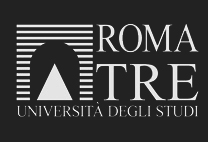
download the issue | HD version
download the table of contents
July 2021
This issue of leNote di U3 is an intermediate output of the project Interreg MED TUNE UP – Promoting multilevel governance for tuning up biodiversity protection in marine areas, which faces the need for a strategic and collaborative approach to Mediterranean Marine Protected Areas (MPAs) management and biodiversity protection. The core idea of the project is to exploit the feasibility and flexibility of the Environmental Contract methodology in Med MPAs. This document has been developed in the framework of ‘WP4 – Transferring’ under the coordination of the Department of Architecture of Roma Tre University and with the contribution of all partners in order to transfer the tested methodology beyond this project partnership. It resumes the main steps and phases faced by the TUNE UP partnership, coordinated by ANATOLIKI SA, in the implementation of 10 MPA Contracts in Mediterranean countries
Lead Partner Foreword
The Mediterranean Sea is acknowledged as one of the priority eco-regions, that contains major biodiversity hotspots. In addition to its ecological value, the economic value of Mediterranean biodiversity and the services it provides have been recognized. A wide array of pressures (e.g. population growth, urbanization, tourism exploitation, overfishing, pollution, shipping traffic, non-native species) are causing loss and fragmentation of Med marine and coastal habitats. Although action to halt biodiversity loss entails costs, biodiversity loss itself is costly for society, so each year certain EU countries lose 3% of GDP due to the loss of marine biodiversity.
The Interreg MED TUNE UP project – Promoting multilevel governance for tuning up biodiversity protection in marine areas, co-financed by the European Regional Development Fund via the Interreg Med Program aims at tackling the need for a strategic and collaborative approach for an effective management of the Mediterranean Marine Protected Areas (MPAs). The results of this effort were evaluated and, with the contribution of all partners, led to the elaboration of this document proposing a methodology for the implementation of Environmental Contracts in MPAs having as main benefits, such as the mainstreaming of the Contract tool in the local/regional regulatory framework; the increase of scientific knowledge regarding marine and coastal ecosystems and awareness raising on MPAs value; the intensified collaboration between local organizations and stakeholders.
Scientific Coordinator Foreword
The core idea of the TUNE UP project is to exploit the feasibility and flexibility of the Environmental Contract methodology in MPAs management with the main goal of biodiversity conservation. Before formal arrangements, concertation among public and private stakeholders stems from a voluntary and participatory process along a shared road-map. In the end of this phase, a Memorandum of Understanding incepts the formal phase calling for public-private partnerships in binding arrangements in terms of liability, financing and timing.
Chapter 1 provides an overview of the MPAs in the Mediterranean basin, reporting their current status with regard to the legal framework and highlighting some differences in management typologies that prove a disadvantage when it comes to protection issues to be shared.
Chapter 2 deals with inner and outer views on current dynamics and processes affecting the Mediterranean, whose main environmental challenges from now to year 2030 concern the extension to 30% of the sea surface protection deemed crucial to perform best connections among the MPAs in view of their effective management.
Chapter 3 delves into all stages of the Environmental Contracts, from their inception to the Action Plan, notably stressing the need of awareness raising among insiders and outsiders of the inherent value to be protected and enhanced.
Chapter 4 reports the main issues emerged in the TUNE UP pilots during the participation process until the signature of the Memorandum of Understanding. Besides common concerns – climate change, rise in sea level and temperature, irresponsible behavior in exploiting sea economies, etc. – the heterogeneity of the case studies is both due to site-specific marine living resources exposed to concurrent events, and to different institutional frames generally conveying a broad array of planning and regulatory tools, sometimes interfering, or even conflicting with each other. Closer inspections with focus groups and territorial labs made it possible to draft for each pilot three shared scenarios – the trend one, the oriented one and the preferred one – on three strategic topics of (i) governance; (ii) environment, and; (iii) economic and social development, as well as to frame the criticalities and potentialities. This common path, highlighting recurrent features as well as specific issues raised by each MPA, allows for a comparison table useful to detect the main deadlocks requiring policy directions to streamline the process.
The conclusions summarize the lessons learned from our pilots, providing researchers and practitioners with recommendations able to achieve collaborative environmental governance in marine areas.


